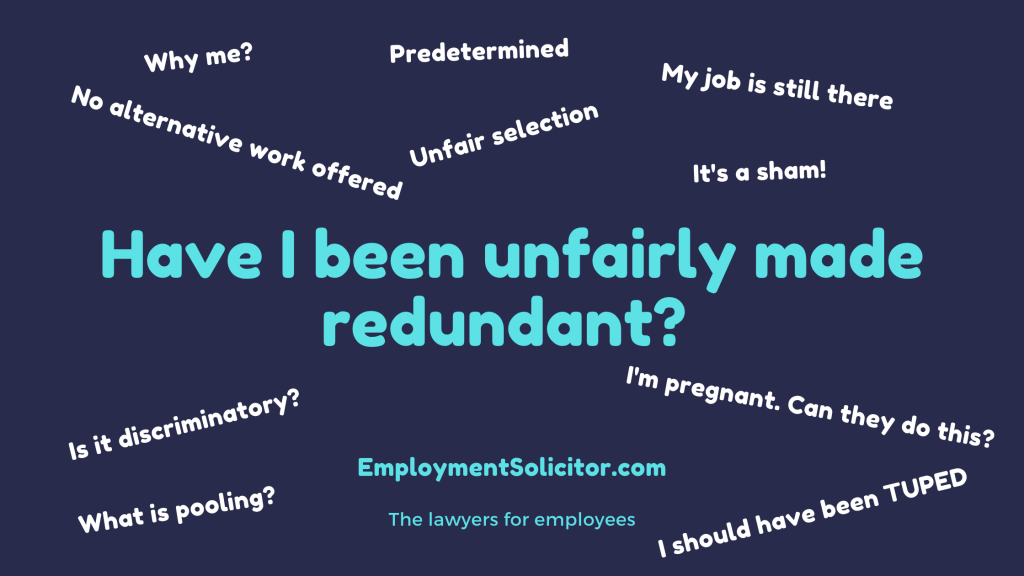Redundancy is one of the potentially fair reasons for dismissal set out within the Employment Rights Act. However, the approach that Employment Tribunals take in analysing claims that arise from redundancy scenarios, can sometimes lead employers to (mistakenly) believe that they are ‘easy’ claims to defend. So, what do HRs need to know?
Employment Tribunals will often be reluctant to ‘look behind’ the business rationale behind the redundancy scenario arising. Rather than carrying out an assessment of that – ultimately businesses can make whatever operational decisions they see fit, whether it transpires to be a positive or disastrous decision – the Tribunal will focus on how fairly the redundant employee was treated throughout the redundancy process. It is therefore important that, regardless of how strong an employer considers its business case for redundancy to be, it still treats the employee fairly.
So, when it comes to a fair redundancy process, what will a Tribunal expect an employer to have done? And where do employers sometimes fall short of a Tribunal’s expectations?

The Acas Code of Practice on Disciplinary and Grievance Procedures applies to many processes that may result in dismissal, yet the Code expressly states that it does not apply to dismissals for redundancy. There is, therefore, no requirement to follow it in such cases. As such, the only principles governing procedural fairness in redundancy cases are those established by case law.
That said, whilst the Acas Code does not itself apply to redundancy processes, it sets out a number of key principles that should not be disregarded. These principles would be considered ‘best practice’ within any HR procedure, and the basic fundamental rights the Acas Code suggests an employee should be afforded in many procedures are equally applicable to a redundancy process. These include:
- Informing the employee of the circumstances and potential outcome;
- Holding meetings with the employee;
- Affording the employee the right to be accompanied at a meeting in which their dismissal may be confirmed;
- Allowing the employee the right to appeal, hearing any appeal and allowing the employee to be accompanied at that hearing; and
- Acting without unreasonable or unnecessary delay.
There are, of course, specific collective consultation obligations involved when dismissing as redundant 20 or more employees within a 90 day period. However, when dealing with employees on an individual basis, what does case law tell us about the approach Tribunals will take to redundancy processes?
An employer will not act reasonably, and the dismissal will therefore be unfair, unless an employer:
Warns and consults employees or their representatives about the proposed redundancies.
Warning the employee is more straightforward – it is simply a case of advising them of the potential outcome(s) of the redundancy process. However, the consultation aspect is an element that employers sometimes fall down on. Any outcome should not be presented to the employee as a fait accompli. Employees should be given reasonable opportunity to comment on the basis for selection (both in terms of pools and selection criteria), challenge any scoring applied to them, suggest alternatives that may avoid their own or other redundancies and to raise any other matters of concern.
Adopts a fair basis for selection for redundancy
This will include an appropriate pool from which to select potentially redundant employees and selecting employees from within that pool based on reasonable and proper criteria.

Identifying an appropriate ‘pool’ will very much depend on the facts and the structure of an organisation, but employers should be wary of not including certain employees – perhaps because they are keen to retain them and not to involve them in such a process – where the facts suggest they should be included.
It is advisable that selection criteria is objective and quantifiable, rather than subjective which can lead to challenges from employees. It is much easier for an employer to defend scoring based on, say, sales figures and other KPIs rather than more subjective criteria like ‘adaptability’ or ‘enthusiasm’.
Employers should also be wary of any potential discriminatory issues in applying selection criteria – for example, where an employee has been absent from the business for a period of time, but that has been as a result of a disability. In such a case, an employer should consider any reasonable adjustments that can be applied to the criteria or the scoring process.
Considers suitable alternative roles
Where an employer fails to turn its mind to whether any suitable alternative roles are available within the business, any dismissal is likely to be unfair. Of course, it may be that there are no suitable (or indeed any) other roles available, but this should at least be discussed with the employee. The duty on the employer is not to make every possible effort to look for alternative employment but to make reasonable efforts.
Some employers will simply provide an internal vacancy list to a potentially redundant employee. Whilst this goes a small way to discharging the employer’s obligations in this regard, a Tribunal is likely to expect the employer to go further in terms of identifying and discussing any of the roles on such a list that could reasonably be considered suitable. On the flip side, an employer would not be expected to produce a job description for a junior administrator role where it is proposing to make its sales director redundant.
Employers often query how long a consultation process should last. In cases where collective consultation obligations don’t apply, there is no minimum timescale. However, the shorter the consultation period, the more likely the substance of the consultation is likely to be challenged. Case law suggests that, depending on the facts, 7 days is the ‘bare minimum’ that is acceptable. However, most employers will normally apply a consultation period of at least a couple of weeks, if not the minimum 30 period applicable to collective consultation.
By Employment Solicitor, Richard Barker.

